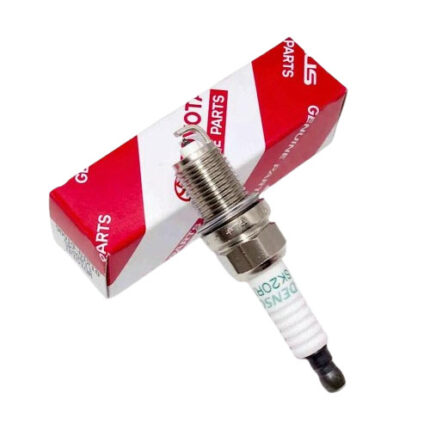-20%
Get Spark Plug BKR6E-11 2756 NGK
Spark plugs are crucial components in the ignition system of internal combustion engines, responsible for igniting the air-fuel mixture in the combustion chamber. Genuine spark plugs play a significant role in ensuring optimal engine performance, fuel efficiency, and overall reliability of the vehicle. This article explores the importance of using genuine spark plugs, their characteristics, benefits, and considerations for maintenance.
Importance of Genuine Spark Plugs
- Reliability and Performance: Genuine spark plugs are designed and manufactured to meet the exact specifications and performance requirements of the vehicle manufacturer. They ensure consistent ignition and combustion, leading to reliable engine operation and performance.
- Compatibility: Genuine spark plugs are engineered to fit perfectly within the engine’s ignition system. They are designed to work seamlessly with other components such as ignition coils, ensuring proper functioning of the entire ignition system.
- Longevity: Genuine spark plugs typically have a longer lifespan compared to aftermarket or counterfeit spark plugs. They are made from high-quality materials that withstand the harsh conditions inside the combustion chamber, including high temperatures and pressure.
- Fuel Efficiency: Properly functioning spark plugs contribute to efficient combustion of the air-fuel mixture. This leads to improved fuel efficiency, as the engine operates more effectively and burns fuel more completely.
- Emissions and Environmental Impact: Genuine spark plugs help the engine maintain optimal combustion, reducing harmful emissions such as hydrocarbons (HC), carbon monoxide (CO), and nitrogen oxides (NOx). This contributes to lower environmental impact and compliance with emissions regulations.
Characteristics of Genuine Spark Plugs
- Material Quality: Genuine spark plugs are typically made from high-grade materials such as platinum, iridium, or other precious metals for the electrode tips. These materials offer excellent conductivity, heat resistance, and durability.
- Exact Specifications: They are manufactured to precise dimensions and specifications as specified by the vehicle manufacturer. This ensures proper fitment and performance.
- Quality Control: Genuine spark plugs undergo rigorous quality control and testing processes during manufacturing. This includes performance testing under various conditions to ensure reliability and longevity.
- Seals and Insulation: Genuine spark plugs feature quality seals and insulation materials that prevent leaks, protect against moisture and contaminants, and ensure reliable operation in all weather conditions.
Benefits of Using Genuine Spark Plugs
- Optimal Engine Performance: Genuine spark plugs maintain consistent ignition and combustion, ensuring smooth engine operation, responsive acceleration, and reduced engine vibration.
- Improved Fuel Efficiency: Properly functioning spark plugs contribute to better fuel combustion efficiency, leading to improved fuel economy and reduced fuel consumption over time.
- Longer Lifespan: Genuine spark plugs typically last longer than aftermarket or counterfeit alternatives. This reduces the frequency of spark plug replacement and maintenance costs over the vehicle’s lifespan.
- Reduced Risk of Engine Damage: Using genuine spark plugs minimizes the risk of engine damage caused by poor ignition, misfires, or improper combustion. This helps preserve the engine’s longevity and reliability.
- Manufacturer Warranty Compliance: Using genuine parts, including spark plugs, ensures compliance with vehicle manufacturer warranties. It provides peace of mind knowing that the parts are covered under warranty for defects or premature failure.
Considerations for Maintenance
- Regular Inspection: Periodically inspect spark plugs for signs of wear, carbon buildup, or electrode erosion. Follow the manufacturer’s recommended maintenance schedule for spark plug replacement.
- Proper Installation: Ensure that genuine spark plugs are installed correctly according to the manufacturer’s specifications. Use appropriate torque settings and techniques to prevent damage to the spark plugs or engine components.
- Environment and Driving Conditions: Consider environmental factors such as temperature and humidity, as well as driving conditions (city vs. highway driving, towing, etc.), which can affect spark plug performance and longevity.
- Replace as Recommended: Replace spark plugs at the recommended intervals specified by the vehicle manufacturer. Delaying replacement can lead to reduced engine performance, increased emissions, and potential damage to other engine components.
Follow us on Facebook for more parts.



